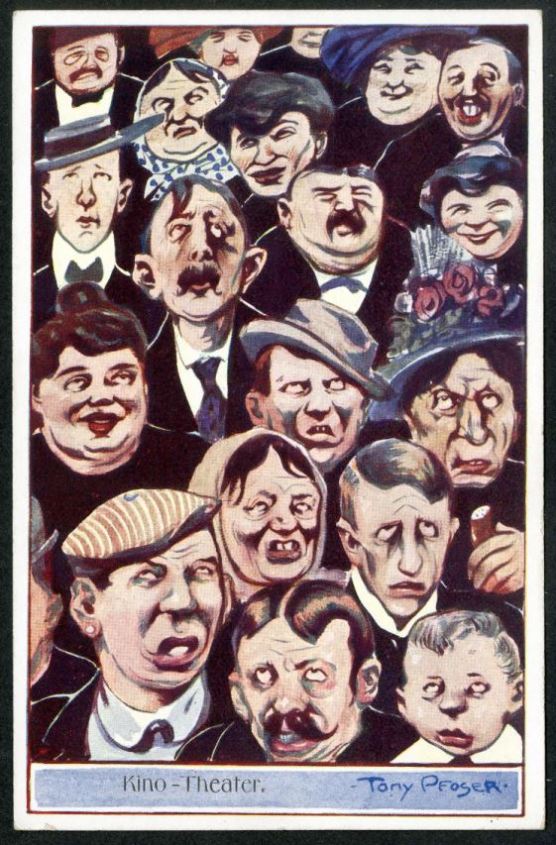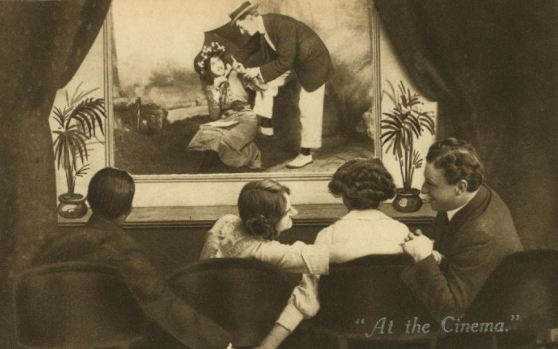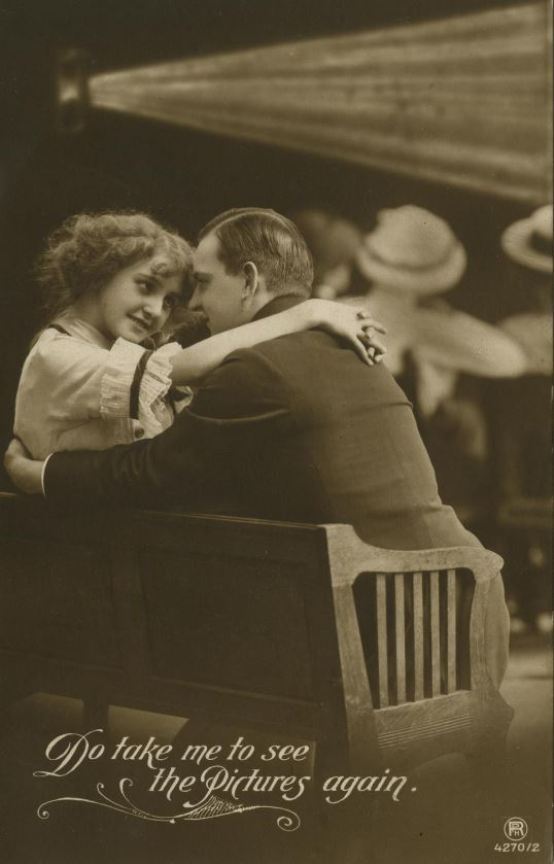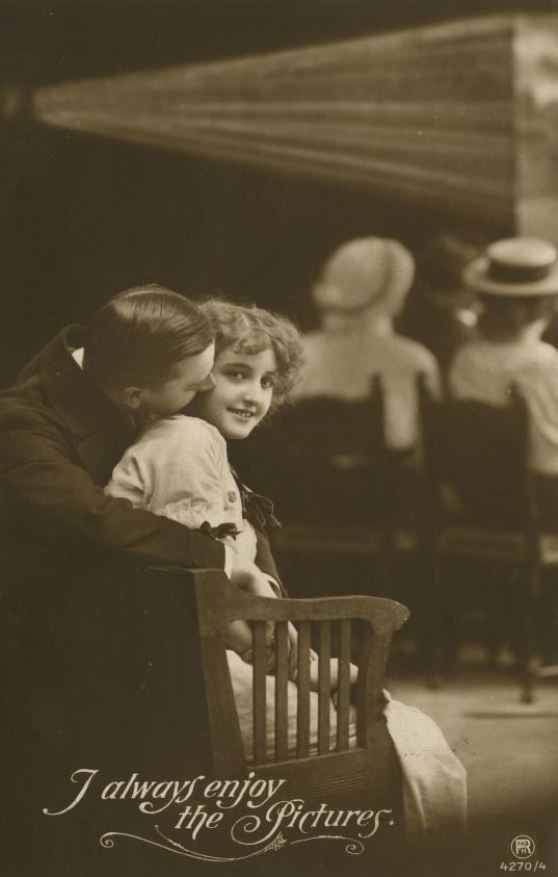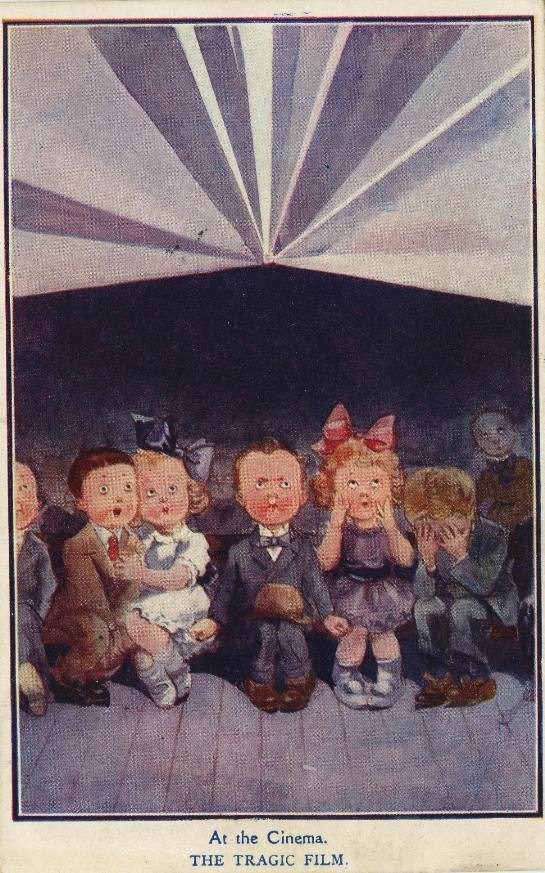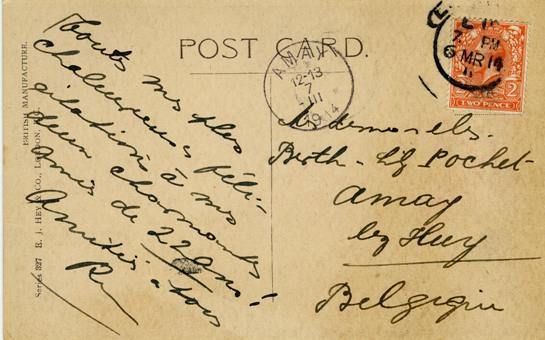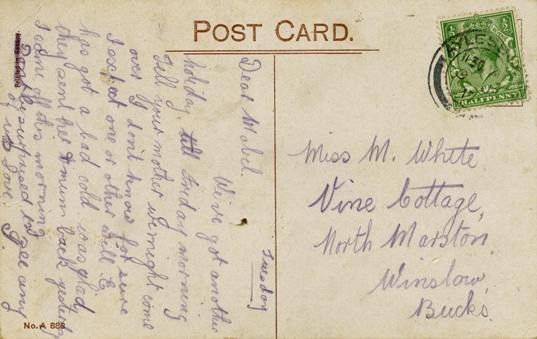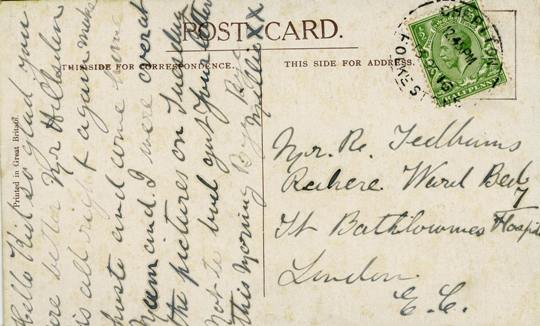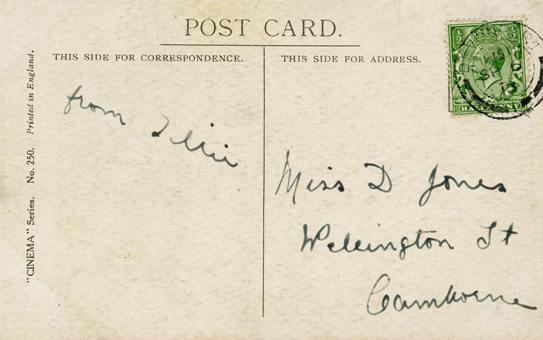Source: Tony Pfoser, ‘Kino-Theater’, undated Austrian postcard, c.1910s, serial no. B.K.W.I. 819-6, from the Nicholas Hiley collection
Comments: Tony Pfoser was an Austrian (or possibly German) caricaturist. The postcard, which was printed in Austria, shows a cinema audience from the screen’s point of view.
